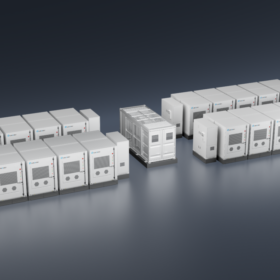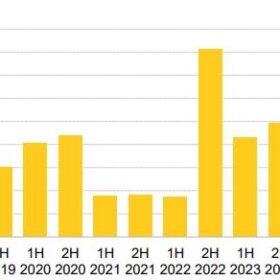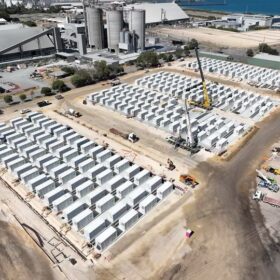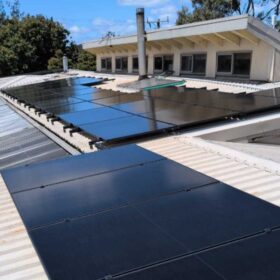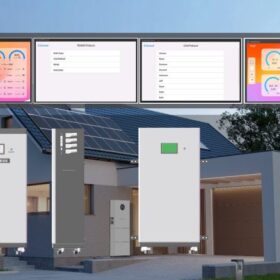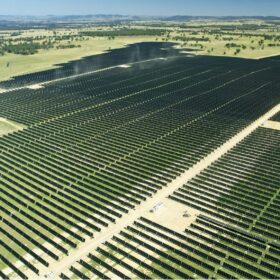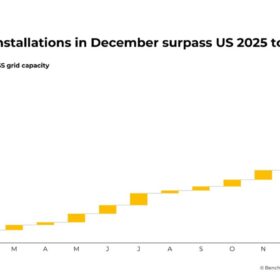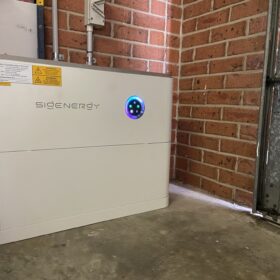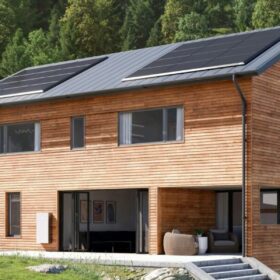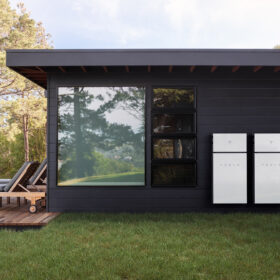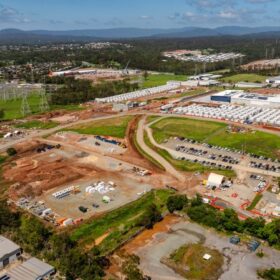Cubenergy releases energy storage block for utility, C&I applications
Cubenergy has launched FlexCombo 2.0, a scalable battery energy storage system for utility, commercial, and industrial applications, offering up to 16 MWh capacity with LFP batteries. Its modular design, advanced BMS, and cloud-based operations enable easy installation, seamless expansion, and efficient grid integration, according to the manufacturer.
BNEF report shows drop-off in support for standalone solar
Investment in utility-scale solar in Australia dropped 35% in the second half of 2025 compared to the previous six months with Bloomberg New Energy Finance saying the growth of rooftop solar and a booming battery market are among the reasons for the precipitous decline.
Scientists design low-cost sodium-ion battery with cheap electrode materials
Conceived for stationary energy storage, the proposed sodium-ion battery configuration relies on an P2-type cathode material and an hard carbon anode material that reportedly ensure full-cell performance. Electrochemical testing revealed initial capacities of 200 mAh/g for the cathode and 360 mAh/g for the anode with capacity retentions of 42% and 67.4% after 100 cycles.
Q4 2025 a landmark period for household and grid-scale energy storage
Battery energy storage went from strength to strength across Australia in Q4 2025, seeing the technology outperform past records in both the National Electricity Market and Western Australia’s Wholesale Electricity Market.
Solar industry collaborators donate animal shelter clean energy system
Omnidian, GoodWe and AIKO have collaborated to install, donate and support long term, a 17 kW rooftop solar and 19.2 kWh battery storage system on an animal shelter in Victoria, and encourage industry to follow suit.
EGbatt releases 15 kWh storage solution for residential use
The Chinese firm has unveiled its latest energy storage solution, the ENERpro-LFP48300, equipped with a 48V, 300 Ah lithium battery. The company boasts a lifespan of more than 9,500 cycles at a high 95% depth of discharge.
$5.1 billion investment in utility-scale solar and wind forecast for 2026
United Kingdom-headquartered energy analyst company Bloomberg New Energy Finance has forecast Australia is likely to see $5.1 billion in investment in utility scale solar and wind in 2026, though wind will account for 95% of the total.
Global BESS demand jumps 51% in 2025 as installations top 300 GWh
Iola Hughes, Head of Research at Benchmark Mineral Intelligence, says 2026 is set to be another strong year for battery energy storage systems, with forecast additions exceeding 450 GWh and no material supply constraints in sight. Meanwhile, the initial impact of rising lithium prices is already visible at the cell level, but the full effect has yet to ripple through to system pricing.
Small-scale battery uptake exceeds 4.7 GWh capacity in six months
Australian households, small businesses and community organisations have installed a record-setting 200,000 battery energy storage systems since the launch of the federal rebate in July with the $7.2 billion initiative now expected to deliver more than 2 million home batteries by 2030.
Tesla offers new all-black solar module for residential applications
The launch of the new product suggests United States-based manufacturer Tesla could renew its focus on residential solar and expand lease options with its Powerwall residential battery energy storage offering.
